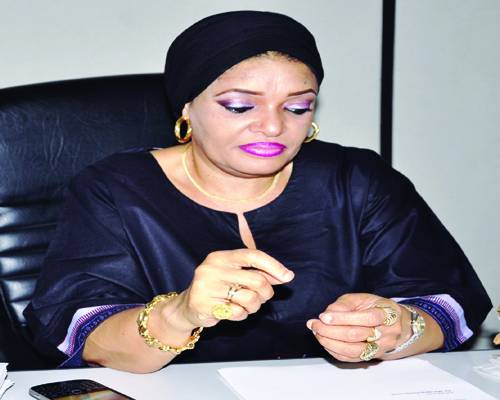The Managing Director, Nigerian Commodity Exchange (NCX), Mrs. Zaheera Baba-Ari, has called for the right policy initiatives, aimed at boosting the country’s non-oil export earnings.
Mrs. Baba-Ari made the call in Abuja during her interaction with Synergos Regional Director for East Africa, Mr. Abera Tola and Dr. Demese Chanyalew, the General Manager of DeMar Ethio-Africa PLC, Addis Ababa, Ethiopia.
She said that only the right policy initiatives would go a long way to strengthen the operations of country commodity exchange.
“The Nigeria Stock Exchange is what it is today, due to a number of intervention policies of government since 1970s.
“The Ethiopian Commodity Exchange (ECX) is so successful and palpable among its farming populace because of the strong support it has received along the way from its government.
“The South African Futures Exchange (SAFEX), which is private sector-driven, has the support of all commercial banks.
“If you must use agricultural commodities as collateral to obtain funds from the bank, you must trade on SAFEX,” she said.
According to her, part of the measures put in place to re-position the Nigerian Commodity Exchange includes increased funding and provision of warehouses.
Mrs. Baba-Ari explained that the country exchange had previously faced numerous challenges arising, principally, from lack of government, financial and institutional support.
She, however, noted with satisfaction that ‘’Federal Government is now providing warehouses, and more funding for upgrading the trading system at the NCX.
“The Standards Organisation of Nigeria (SON) has developed standards for commodities that we are trading too.
“The government is also bringing in people to invest in the exchange so that we can play our role as it is meant to be; to improve the life of farmers.”
According to her, NCX is going into business partnerships with people that trade on the exchange, and stock their commodity in the commodity accredited warehouses.
The NCX managing directors thanked Synergos Nigeria for creating the meeting for the officials to interact, exchange, share ideas and learn from the Ethiopia Commodity Exchange which she said enjoyed support from Synergos.
Also speaking, Dr. Demese Chanyalew said that Nigerian agricultural sector could learn from the Ethiopia practice of designing and formulating indigenous policies and strategies.
According to him, commodity exchange policies should not be dictated, but rather have the understanding of the grassroots and smallholder farmers to improve their income.
“The learning should be mutual, that is, between NCX and ECX, since our two countries have different economic bases.
“Ethiopia is predominantly agricultural country, and our overall economy depends on the agricultural sector.
“The Nigerian economy is oil-based. We can learn from each other in our attempt to diversify our revenue sources.
“We have shared experiences of our coffee which is trading so well at the international market. I hope NCX learns from our success story and apply the lessons,” he said.
Contributing, Mr. Adewale Ajadi, the Country Director of Synergos, said that the meeting was aimed at making Nigeria to learn from the experience of the Ethiopia Commodity Exchange.
Mr. Victor Adejoh, Field Manager at Synergos represented Ajadi at the occasion.
Mr. Ajadi explained that Synergos’ role was to see how Synergos, an NGO, could build relationships with farmers and other players by bringing key stakeholders from Ethiopia to share their experiences.
“It is also our hope that NCX understands the dynamics of commodity across the globe, and put Nigeria in the position of actually strengthening its commodity export through economic diversification.
“We are also hoping that the Commodity Brokers Association of Nigeria (CBAN) will step up its activities in aggregating commodities and build relationships with farmers to improve their livelihood and income,”











